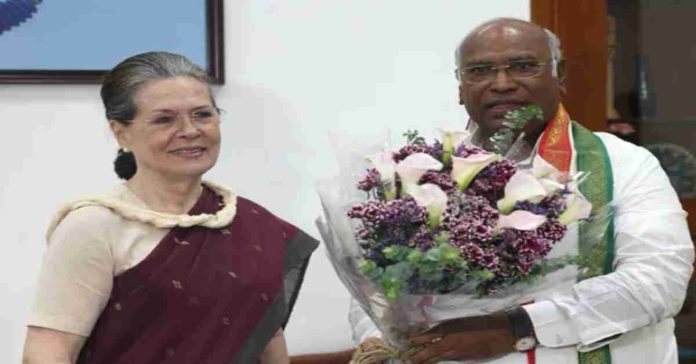By Sujit Bhar
The Indian National Congress has finally been able to complete its election process to foist a new, non-Gandhi president atop its party administration. Following the election, the newly anointed president Mallikarjun Kharge praised the process, dismissing a lament on irregularities mouthed by the other candidate, Shashi Tharoor. Kharge said it was a very democratic process, free and fair.
Later, he also added: “No one is small or big and we have to all work like karyakartas to strengthen the organisation. We have to together fight the threat to democracy and the Constitution. We have to fight the fascist forces that are attacking democracy and democratic institutions wearing the garb of communalism.”
These are commendable comments, though, in the backdrop of this election process, it somewhat presents a contradiction in terms. If anything, the entire convoluted process was not really representative of a democratic process. Also, in the end, has there really been a change at the top? Will the Congress assume a different set of procedures and methodologies? Will there be a consultative process throughout India? Will Pradesh Congress committees coalesce into something solid and their voices and concerns heard and addressed? And, finally, will the authority of the Gandhi family wane?
Good, that the Congress wants to fight “fascist forces that are attacking democracy”, but is it ready to fight its own demons? Is Kharge in a position to handle the overarching influence of a family that has lost its credibility, a family that has been singularly responsible for the degeneration of a century-old party that has seen leaders like Womesh Chandra Bonnerjee, Rashbehari Ghosh, Madan Mohan Malaviya, Abul Kalam Azad, Mahatma Gandhi, Jawaharlal Nehru, Vallabhbhai Patel, Subhas Chandra Bose and others?
To be frank, the 80-year-old Kharge, himself, is a person worth the president’s post, except that when we all know whose puppet he will remain, it gives rise to bile. Nobody doubts the good intentions of Dr Manmohan Singh, even today. What one doubts is whether his loyalty to the family overrode his loyalty to his country. Kharge will remain the ubiquitous family loyalist, where his loyalty to the party will be in question.
The first point of ‘credit’ for Mapanna Mallikarjun Kharge is that he is a Dalit. This was the same principle that the BJP employed when they drew out an obscure party operative, Droupadi Murmu, from the depths of Odisha – she was also the Jharkhand Governor for a while – and posted her as the commander of our defence forces as President of the Republic.
It is a matter of debate as to how a leader from Karnataka was preferred to a leader from Kerala (Tharoor), but that is another story. Kharge has been called a ‘solilada sardara‘, or a warrior who knows no defeat. This, possibly, comes from his large electoral trophy cabinet. He has won elections for a record 11 consecutive times having; assembly elections 9 times (1972, 1978, 1983, 1985, 1989, 1994, 1999, 2004, 2008) and parliamentary elections twice (from Gulbarga) in 2009 and 2014.
That establishes his political credentials and, any younger, he would have been a formidable force at the top of the pyramid. But the fact that Kharge got 90 per cent of the votes at the October 17 hustings says a thing or three about how democratically free-thinking the Congress members are. Kharge got 7,897 delegate votes, while Tharoor got 1,082.
How did a polarisation like that happen? Where did the so-called Group of 23 leave their spines? They, almost en masse, voted for Kharge. What were they protesting about so long? The Congress has been split several times in the past, and internal squabbles have only strengthened its democratic spine. Today, they speak in a voice that sounds so subservient, it is scarily similar to another party we all know.
No, the Congress has not been reinvented. And even if the show window looks a bit different, you can only buy the same old souvenirs inside. Reminds one of Rahul Gandhi’s comment after the elections. He said his role henceforth will be decided by the party chief. One does not understand why a son should be talking to his mother through an uncomfortable intermediary?


